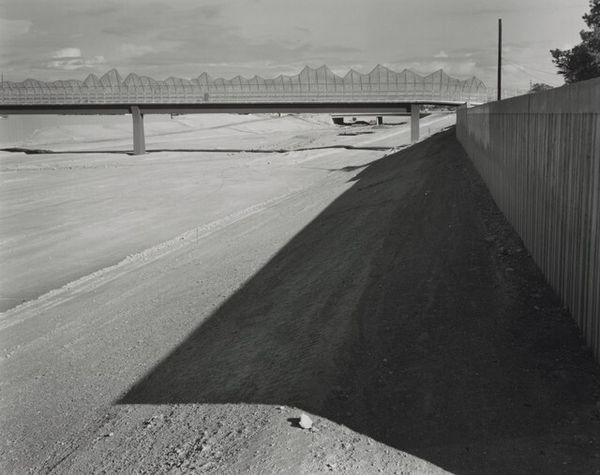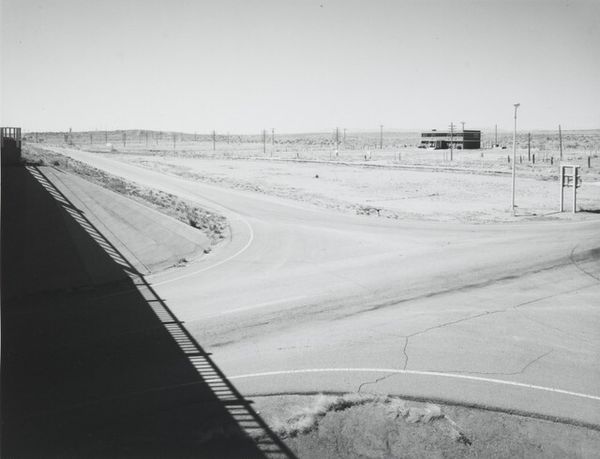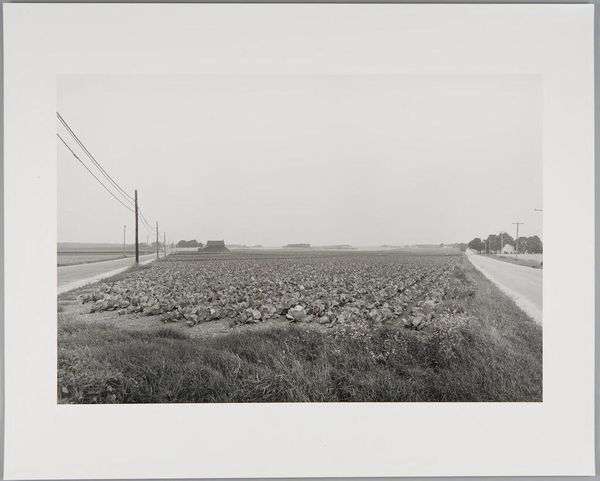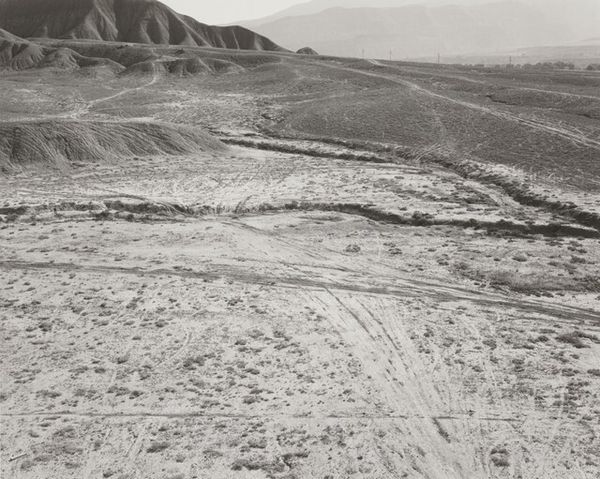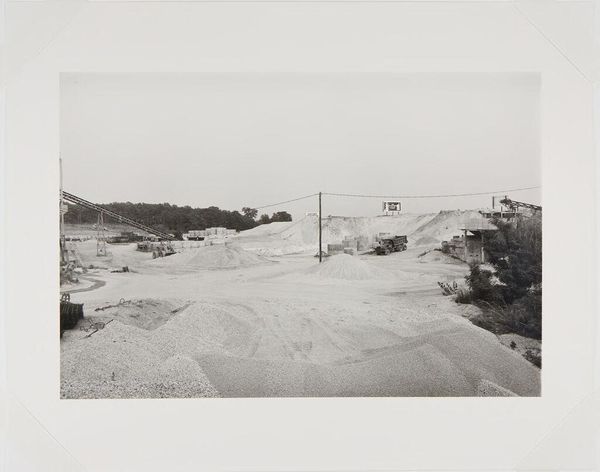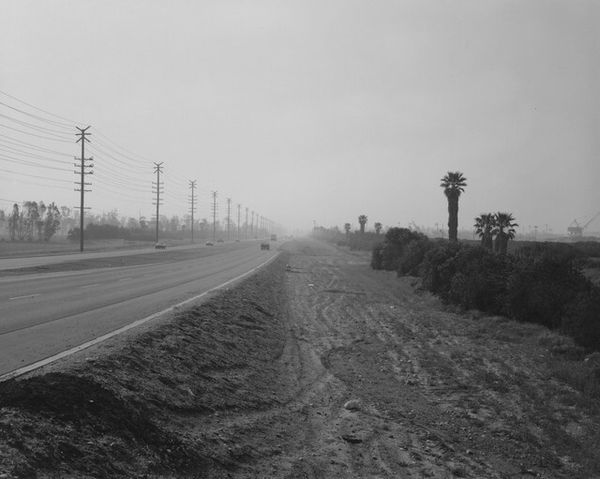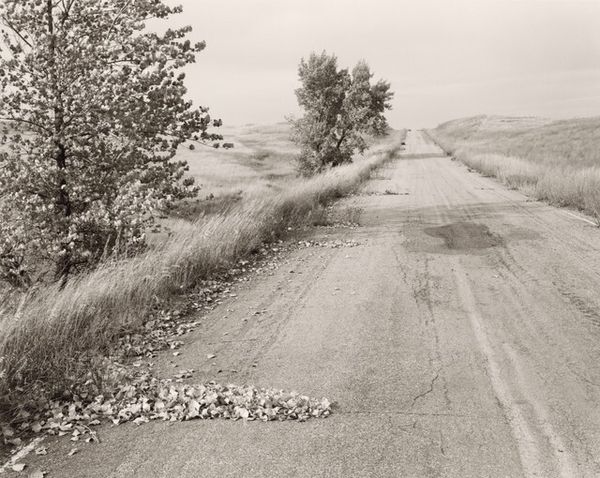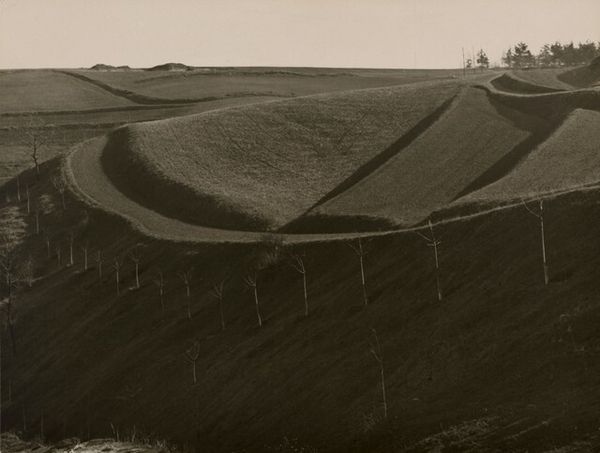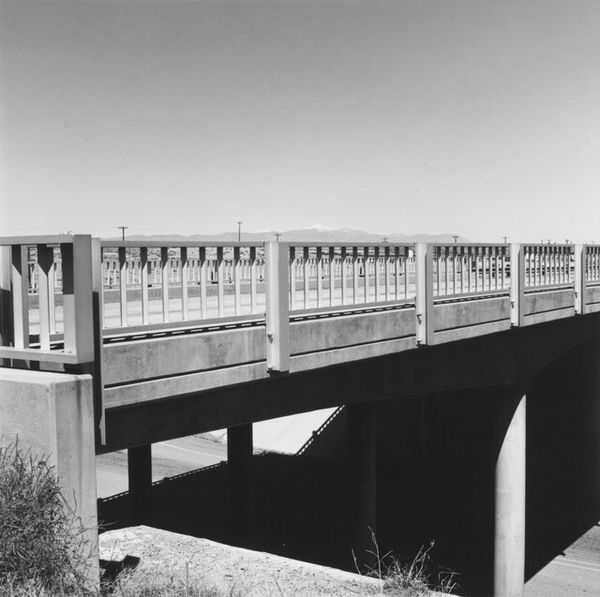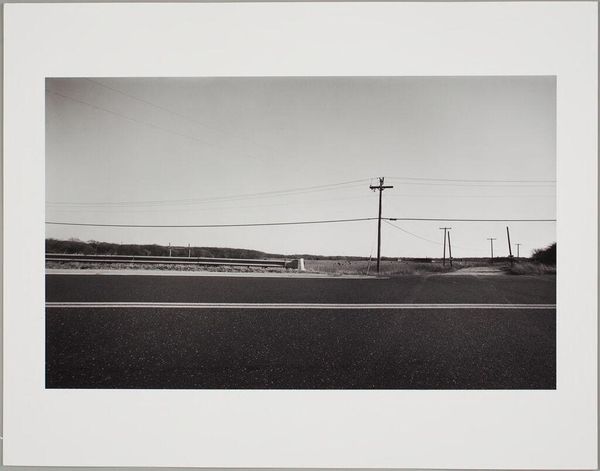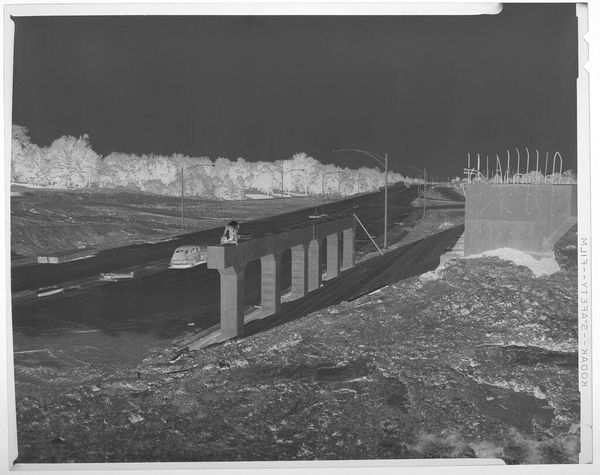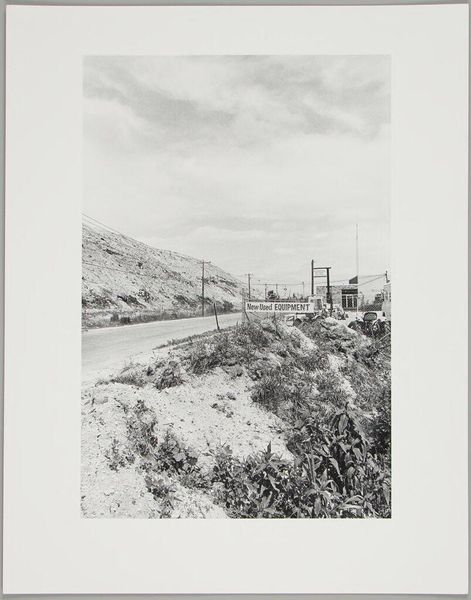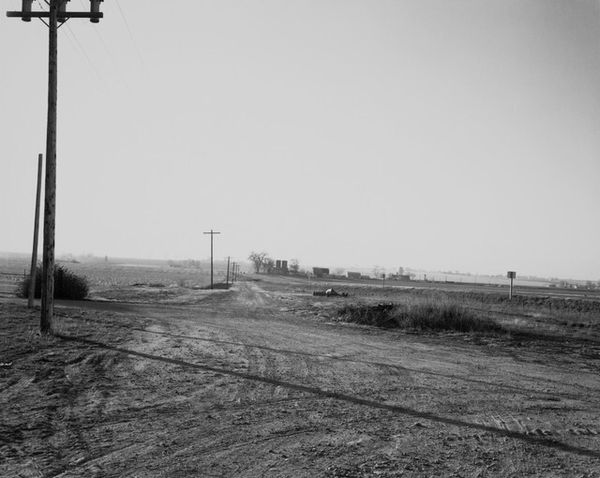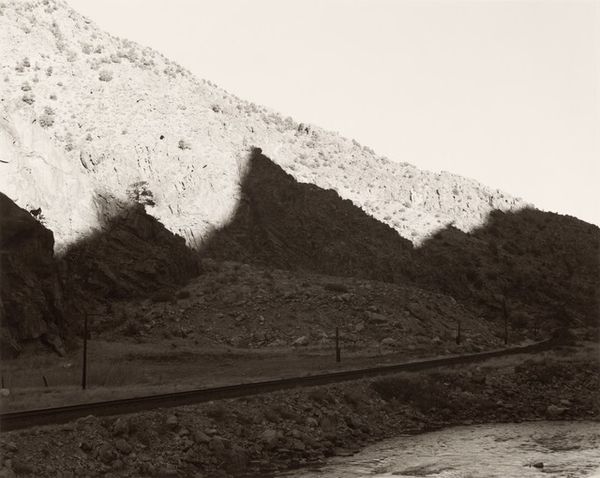
photography
#
black and white photography
#
landscape
#
street-photography
#
photography
#
black and white
#
monochrome
#
realism
#
monochrome
Dimensions: image: 27.94 × 35.56 cm (11 × 14 in.) sheet: 40.64 × 50.48 cm (16 × 19 7/8 in.)
Copyright: National Gallery of Art: CC0 1.0
Editor: So, this is Allen Dutton’s “Phoenix, 101 and Tatum, Access Road, Looking West,” from 2000, a black and white photograph. It feels…stark. Very empty, even with the road and the…are those hay bales? What do you see in it? Curator: I see a powerful commentary on human intervention within the landscape. Dutton captures the banality of progress – the highway, the graded earth – all rendered in a stark monochrome that strips away any romanticism. What's interesting is the road sign that says "Wrong Way." It serves as a symbolic challenge, perhaps criticizing the direction we are headed in, or offering alternative ways to see the American West, often presented as a landscape of promise. Editor: That’s interesting, I didn’t focus on that. So, you see the photograph as less about a specific place and more about a statement about… societal direction? Is the artist suggesting this constant development leads to an erasure of natural spaces? Curator: Precisely! Consider the title, too. It anchors us to a very specific intersection. Dutton juxtaposes this identifiable location with the generic visual language of highway construction. This makes you think about the indigenous histories layered beneath these places and spaces and also about issues of environmental justice as we consider who these projects disproportionately affect. What statement do you think the artist is trying to convey by capturing it in the specific time? Editor: Hmmm... The 2000s were this period of intense development and economic boom, right? Maybe this photograph challenges that relentless pursuit of growth. This photo is much deeper than I initially thought. I was definitely looking at it on a very superficial level. Curator: Exactly. By inviting us to examine these spaces, Dutton provokes a critical reflection on how our built environment shapes, and often diminishes, both our physical world and our social fabric. It challenges us to consider what we're sacrificing in the name of progress. Editor: Okay, that's a new perspective I never considered. It seems straightforward but looking beneath it… the black and white photography definitely contributes to the somber tone and highlights this idea. Curator: Indeed. And art's power lies in its capacity to provoke such reconsiderations, altering the lenses through which we perceive the world around us.
Comments
No comments
Be the first to comment and join the conversation on the ultimate creative platform.
